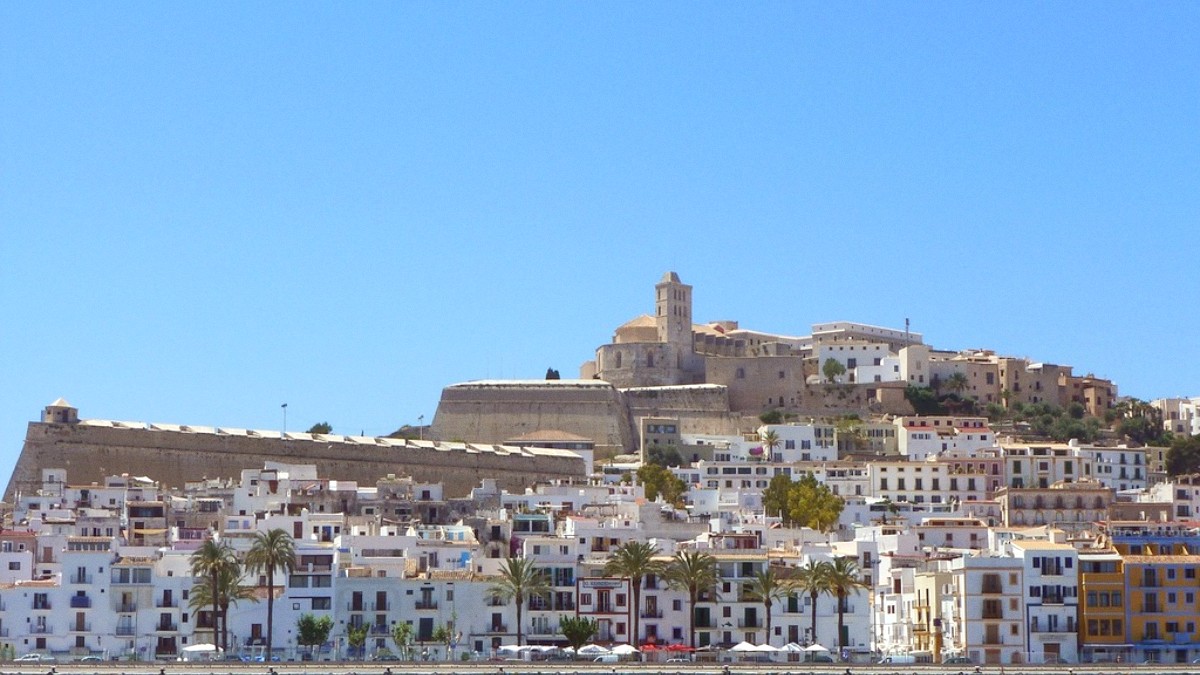
Spain
Spain's robust mobile network includes providers like Orange, Vodafone, and Movistar. Prepaid SIM cards are available upon presentation of your passport for registration.
Free Wi-Fi is common in most hotels, cafes, and restaurants. The island also boasts good 4G and 5G mobile coverage, keeping you connected outside Wi-Fi zones.
Catalan (specifically the Eivissenc dialect) and Spanish (Castilian) are the official languages of Ibiza. English is widely spoken in tourist areas, hotels, and many restaurants.
While English is common, learning a few basic phrases in Spanish can truly enrich your interactions and show respect.
A local SIM or eSIM from Airalo will provide reliable data for navigation and communication. Wi-Fi is widely available in many establishments.
Smaller, traditional shops often close for a midday break (siesta), typically from 1:30 PM to 5:00 PM. Larger supermarkets and shops in very touristy areas may operate continuously.
Lunch is generally served from 1:00 PM to 3:00 PM. Dinner typically starts later, from 8:00 PM to 11:00 PM or even later, with many places not opening for dinner before 7:30 PM.
Banks typically operate from 8:30 AM to 2:00 PM, Monday to Friday. ATMs are widely available 24/7 for cash withdrawals and other banking needs.
Be aware of national holidays, as many businesses, banks, and some restaurants may be closed or have reduced hours, impacting services.
Ibiza has its own unique local holidays, during which many businesses close or adjust their hours, and public transport may also run on a reduced frequency.
Check business hours, especially during siesta and public holidays. Many tourist-oriented businesses close during the low season (November-April).
Embracing local customs and showing cultural awareness enriches your travel experience and fosters positive interactions.
A simple "Hola" is suitable for most informal greetings. Two kisses on the cheek (starting with the right cheek) are common between women, or a man and a woman who know each other. Handshakes are common for more formal introductions.
Dress is generally casual in Ibiza Town. However, when visiting churches or religious sites, modest dress (shoulders and knees covered) shows respect. Many clubs have dress codes, often favoring smart casual or trendy attire.
Tipping is appreciated but not mandatory. It is common to round up the bill or leave 5-10% for good service in restaurants. Eating tapas is a social activity; sharing dishes is common.
It is generally acceptable to photograph public places and landmarks. However, always ask for permission before photographing individuals, especially in rural areas, local markets, or religious settings.
A basic understanding of Spanish phrases and local customs truly fosters meaningful interactions with residents.
Planning for accessibility makes for a more comfortable and inclusive journey for all travelers visiting Ibiza Town.
The ancient Dalt Vila, with its steep, winding cobblestone streets, presents challenges for wheelchairs and those with limited mobility. Newer areas of Ibiza Town generally feature wider pavements and ramps, making navigation simpler.
Major hotels often provide accessible rooms designed for comfort. Some modern attractions and establishments are designed with accessibility in mind, welcoming all visitors.
Dedicated services for travelers with visual or hearing impairments are limited. However, assistance dogs are generally accepted in public places across the island.
For travelers with specific accessibility needs, detailed planning is highly recommended to guarantee a comfortable and barrier-free experience.
Contact the official Ibiza tourism board for up-to-date accessibility information.
These agencies focus on accessible travel and can provide tailored advice and planning.
Look for online resources or apps that highlight accessible routes and venues.
Always confirm accessibility features directly with venues and transport providers. Early planning will greatly contribute to a smoother experience.